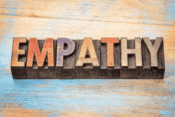
How to Use Emotional Intelligence to Strengthen Your Personal Relationships
A few months ago, I had an intense conversation with a close friend. She was frustrated about something in her life, and I, eager to help, immediately started offering advice. I thought that by providing practical solutions, I was being supportive. But I quickly realized my mistake. She didn’t need advice at that moment—she needed someone to listen and acknowledge her feelings.
That moment was an eye-opener for me. It wasn’t about the solutions I could offer; it was about understanding her emotional state and responding in a way that made her feel heard and validated. This experience made me reflect on how emotional intelligence, especially the ability to empathize and regulate our responses, impacts the quality of our personal relationships.
Personal relationships thrive on connection, understanding, and trust, but maintaining these bonds requires more than just good intentions. Emotional intelligence (EI)—the ability to recognize, manage, and express emotions—has been identified as a key driver in fostering healthy relationships. According to a recent study by the American Psychological Association, individuals with higher emotional intelligence report greater relationship satisfaction. Let’s explore fresh, practical ways you can use EI to strengthen your personal relationships, focusing on relatable, real-life applications that make an impact.
Practical ways you can use EI to strengthen your personal relationships
1. Celebrate the Small Wins Together
In relationships, big gestures often get the spotlight, but celebrating small achievements can strengthen emotional bonds.
- How to Apply: If your friend lands a minor project or your partner reaches a fitness milestone, take time to acknowledge and celebrate these moments. A simple, heartfelt “I’m proud of you” goes a long way.
- Relatable Insight: Think about how good it feels when someone notices your effort, even in small tasks. This validation fosters mutual appreciation.
2. Be Present, Not Just Physically but Emotionally
Being physically around someone doesn’t guarantee connection—emotional presence matters more.
- How to Apply: During conversations, put your phone away, maintain eye contact, and genuinely engage. Practice active listening without formulating responses in your head.
- Relatable Insight: How often do you feel unheard during distracted conversations? Being emotionally present ensures your loved ones feel valued.
3. Adapt to Their Love Language
Understanding and responding to someone’s preferred way of receiving love can deepen relationships.
- How to Apply: If your partner values acts of service, prioritize helping with their tasks over verbal affirmations. If your friend appreciates quality time, plan one-on-one activities.
- Relatable Insight: Think of moments when someone understood and met your needs in a way that resonated deeply—it’s a game-changer.
4. Share Vulnerabilities, Not Just Strengths
Strengthening relationships isn’t just about showcasing your best self; it’s also about being authentic.
- How to Apply: Open up about your struggles, fears, or insecurities when appropriate. This fosters trust and allows others to feel safe sharing their vulnerabilities too.
- Relatable Insight: Consider how bonding over shared struggles can create unshakable trust and closeness.
5. Practice Emotional Generosity
Emotional generosity involves going out of your way to offer support, encouragement, or forgiveness, even when it’s not “deserved.”
- How to Apply: If someone close to you has a tough day, offer kindness without expecting anything in return. Forgive minor slip-ups without holding a grudge.
- Relatable Insight: Remember how it felt when someone extended grace to you during your worst moments? Paying it forward enriches relationships.
6. Laugh Together—Often
Humor is a powerful tool for emotional connection and stress relief in relationships.
- How to Apply: Share funny stories, watch comedy shows together, or laugh at inside jokes. Humor creates positive shared memories and lightens serious situations.
- Relatable Insight: Think of a time when laughter dissolved tension in a heated argument or brought you closer to someone.
7. Recognize Emotional Triggers in Others
Everyone has unique emotional triggers, and being mindful of them can prevent unnecessary conflicts.
- How to Apply: Observe what topics, tones, or situations upset your loved ones. For instance, if your friend dislikes being interrupted, make a conscious effort to let them finish speaking.
- Relatable Insight: Imagine how much easier life would be if others respected your triggers. Doing the same for them strengthens trust.
8. Reflect on Past Conflicts and Learn from Them
Every argument holds valuable lessons about emotions and communication.
- How to Apply: After a disagreement, reflect on what went wrong and what could have been done differently. Use these insights to handle similar situations better in the future.
- Relatable Insight: Recall how resolving past conflicts has improved your understanding of each other over time—it’s a stepping stone for growth.
9. Be Consistent in Your Actions
Consistency builds trust and reliability, essential components of strong relationships.
- How to Apply: Show up when you promise to. Be dependable in your words and actions, whether it’s calling when you said you would or showing up on time.
- Relatable Insight: Think about how reassuring it feels when someone consistently meets your expectations—it’s comforting and strengthens bonds.
10. Use Emotional Intelligence to Strengthen Boundary-Setting
Healthy boundaries are crucial for sustainable relationships, and EI helps you set them respectfully.
- How to Apply: When setting boundaries, communicate them clearly and empathetically. For example, say, “I need some alone time to recharge, but I value our time together.”
- Relatable Insight: Remember how confusing relationships can be without clear boundaries? Setting them enhances respect and clarity.
Conclusion
Strengthening personal relationships with emotional intelligence isn’t about perfection—it’s about intentionality. By celebrating small wins, sharing vulnerabilities, being emotionally present, and setting clear boundaries, you can create connections that are authentic and lasting. Remember, relationships are a two-way street, and the more effort you put into understanding and supporting your loved ones, the stronger those bonds will become.
References:
- Goleman, D. (1995). Emotional Intelligence: Why It Can Matter More Than IQ.
- Harvard Business Review. “Emotional Generosity in Relationships.” 2023.
- Psychology Today. “How Humor Strengthens Bonds.” 2023.
- Mind Tools. “The Power of Vulnerability in Building Trust.” 2023.
- Greater Good Science Center. “The Role of Emotional Triggers in Conflict Resolution.” 2023.













